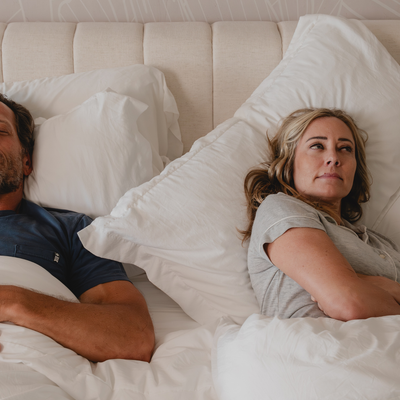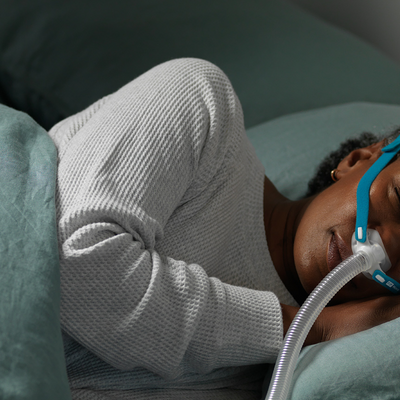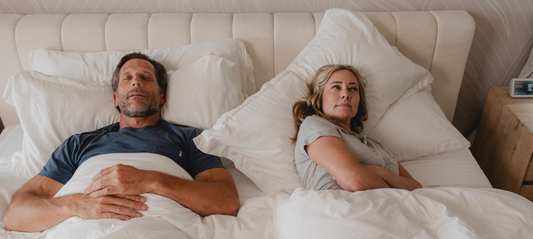Sleep apnea is a prevalent condition affecting millions worldwide, characterized by repeated interruptions in breathing during sleep. These interruptions can lead to fragmented sleep and various health issues if left untreated. Among the most common treatments for sleep apnea are Continuous Positive Airway Pressure (CPAP) and Bilevel Positive Airway Pressure (BiPAP) machines. This article aims to provide an in-depth comparison of CPAP and BiPAP machines, helping you understand which option might be best suited for your needs.
Understanding CPAP and BiPAP Machines
What Are CPAP Machines?
CPAP stands for Continuous Positive Airway Pressure. A CPAP machine delivers a steady stream of pressurized air through a mask, keeping the airways open during sleep. This constant pressure helps prevent the collapse of the airways, reducing or eliminating apnea events.
Common Uses and Settings:
- Typically prescribed for obstructive sleep apnea (OSA).
- Commonly features a single, constant pressure setting.
- Often includes a ramp feature to gradually increase pressure, easing the patient into sleep.
What Are BiPAP Machines?
BiPAP stands for Bilevel Positive Airway Pressure. Unlike CPAP, BiPAP machines provide two levels of pressure: one for inhalation (IPAP) and a lower one for exhalation (EPAP). This dual-pressure setting can make breathing more comfortable for some patients.
Common Uses and Settings:
- Typically prescribed for obstructive sleep apnea (OSA).
- Commonly features a single, constant pressure setting.
- Often includes a ramp feature to gradually increase pressure, easing the patient into sleep.
Comparing BiPAP and CPAP
Technical Differences
BiPAP Machines:
BiPAP machines offer dual pressure settings, known as Inspiratory Positive Airway Pressure (IPAP) and Expiratory Positive Airway Pressure (EPAP). This feature makes them more comfortable for patients who require higher pressure settings or those who have difficulty exhaling against constant pressure.
CPAP Machines:
On the other hand, CPAP machines provide a single, constant pressure setting. Due to their simplicity and cost-effectiveness, CPAP machines are generally favored by many patients seeking treatment for sleep apnea.
Patient Comfort and Adaptation
BiPAP Machines:
The adaptability of BiPAP machines can significantly enhance patient comfort, especially for those with specific medical conditions. The dual-pressure system allows for easier breathing, mimicking natural breathing patterns more closely. As a result, BiPAP therapy can lead to better adherence and improved sleep quality for many users.
CPAP Machines:
While CPAP machines are generally well-tolerated, some patients may experience discomfort, particularly when high-pressure settings are necessary. Modern advancements, including auto-adjusting CPAP machines, have addressed some of these concerns by providing variable pressure throughout the night based on the user's needs. This technology helps maintain the effectiveness of CPAP therapy while enhancing patient comfort.
Maintenance and Care
Regular maintenance of both CPAP and BiPAP machines is crucial to ensure optimal performance and hygiene. This involves routine cleaning of the mask, tubing, and humidifier chamber, as well as replacing filters and other components as needed. Proper maintenance not only prolongs the lifespan of the machine but also helps prevent infections and other health issues related to device usage.
Cost and Accessibility
CPAP machines are typically less expensive than BiPAP machines, making them a more accessible option for many patients. The lower upfront cost, combined with widespread availability, contributes to their popularity. Conversely, the higher cost of BiPAP machines may be justified by their advanced features and the additional comfort they provide for patients with complex needs. However, it's important to balance cost considerations with the specific therapeutic requirements of the patient.
When to Use CPAP:
CPAP machines are primarily recommended for patients with obstructive sleep apnea (OSA). Their simplicity and effectiveness make them suitable for most sleep apnea patients.
When to Use BiPAP:
BiPAP machines, however, are ideal for patients with central sleep apnea or complex sleep apnea. Additionally, they are beneficial for individuals with certain respiratory or cardiac conditions that require varying levels of pressure during the breathing cycle.
Advantages and Disadvantages
Benefits of Using a CPAP Machine:
One of the main advantages of using a CPAP machine is its simplicity and ease of use. Moreover, as mentioned earlier, CPAP machines are generally lower in cost compared to BiPAP machines and are widely available with numerous options, including auto-adjusting CPAP machines.
Benefits of Using a BiPAP Machine:
BiPAP machines enhance comfort for patients needing higher pressure settings. They are better suited for complex respiratory and cardiac conditions and allow for more personalized pressure settings, potentially improving therapy adherence.
Downsides of Each Therapy
CPAP Machines:
While CPAP machines are beneficial, they may cause discomfort for some patients, particularly those who need higher-pressure settings. Exhaling against constant pressure can be challenging for these individuals.
BiPAP Machines:
Conversely, BiPAP machines are more complex and often more expensive than CPAP machines. They require more detailed settings, which can complicate the initial setup.
Lofta’s Top CPAP and BiPAP Machines
At Lofta, we offer a range of top-rated CPAP and BiPAP machines designed to fit various needs and preferences. Among our best-selling and highly recommended models, the ResMed AirSense 11 AutoSet CPAP Machine stands out for its advanced features and user-friendly design. For those who travel frequently, the ResMed AirMini is a highly portable option. For BiPAP machines, the ResMed AirCurve 11 VAuto offers versatile settings and advanced comfort features. For more options, explore our full collection of auto-adjusting CPAP machines and bilevel CPAP machines.
CPAP Machines
- ResMed AirSense 11 AutoSet CPAP Machine: Known for its advanced features and user-friendly design.
- ResMed AirMini: A highly portable option for those who travel frequently.
BiPAP Machines
- ResMed AirCurve 11 VAuto: Offers versatile settings and advanced comfort features.
For more options, explore our full collection of auto-adjusting CPAP machines and bilevel CPAP machines.
Frequently Asked Questions (FAQs)
What is the main difference between CPAP and BiPAP?
The primary difference lies in the pressure settings: CPAP provides a constant pressure, while BiPAP offers two levels of pressure (IPAP and EPAP), making it easier for some patients to breathe out.
Who should consider using a BiPAP machine over a CPAP machine?
Patients with central sleep apnea, complex sleep apnea, or certain respiratory and cardiac conditions may benefit more from a BiPAP machine due to its dual pressure settings.
Can I switch from CPAP to BiPAP if I am not satisfied?
Yes, but it is essential to consult with your healthcare provider before making any changes to your treatment. They can help determine if a BiPAP machine is appropriate for your needs.
How do I know which machine is right for my needs?
Consulting with a healthcare provider is crucial. They can perform assessments and recommend the best machine based on your specific condition and comfort preferences.
CPAP or BiPAP, which is right for you?
Choosing between a CPAP and a BiPAP machine is a significant decision that can impact your sleep quality and overall health. By understanding the differences between these two types of machines, you can make an informed choice that best suits your needs. Always consult with a healthcare provider to ensure you select the right machine for your condition.
For additional information and assistance, visit Lofta or contact us directly. Ready to take the next step? Explore our range of CPAP and BiPAP machines or get an At-Home Sleep Test to start your journey towards better sleep.
Additional Resources and Links
- Types of CPAP Machines
- CPAP Machines: How to Choose, Set Up, and Use for Better Sleep
- Auto-Adjusting CPAP Machines Collection
- Bilevel CPAP Machines Collection
Choosing the right sleep apnea treatment can transform your life. Let Lofta guide you every step of the way.
















